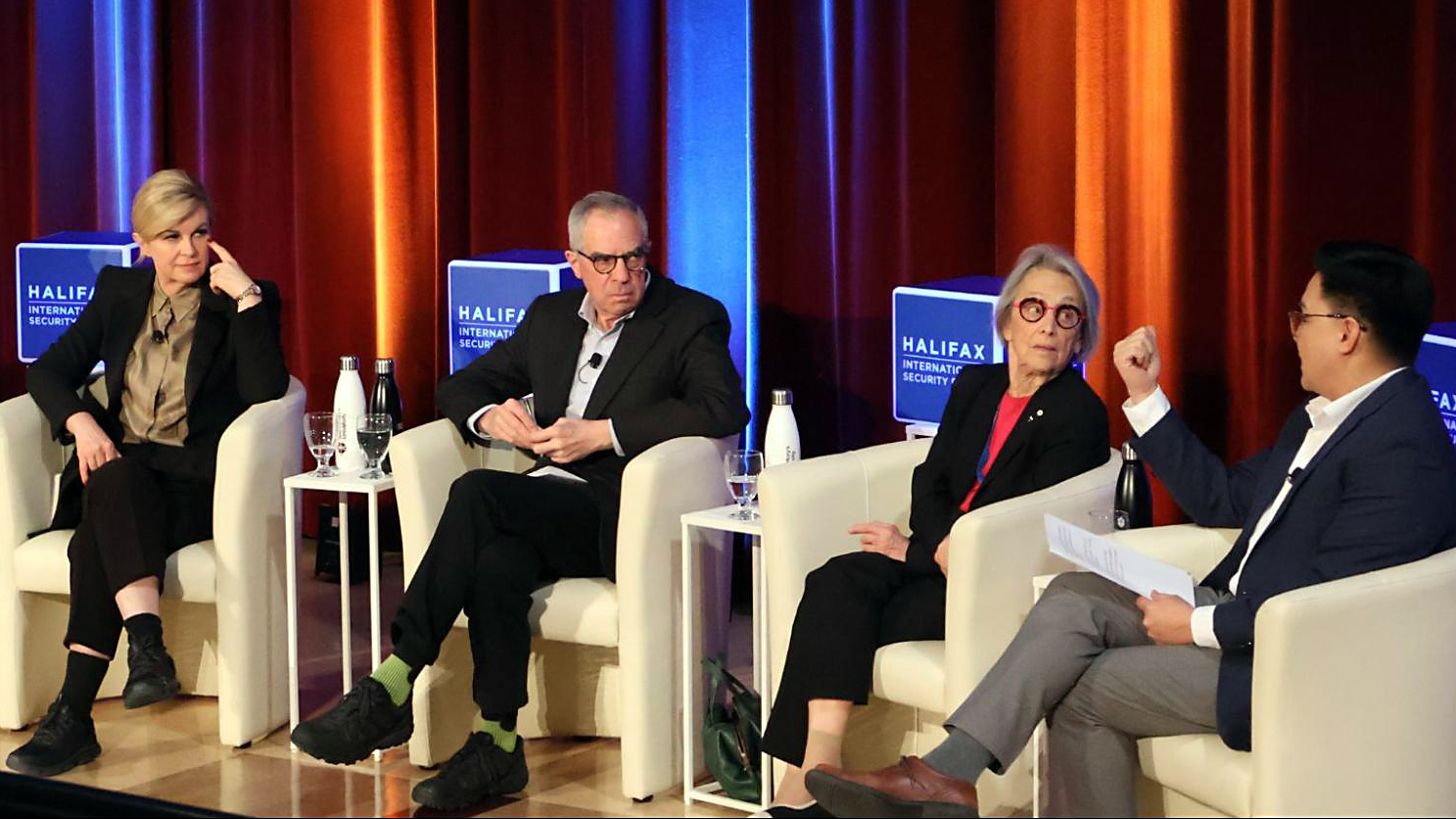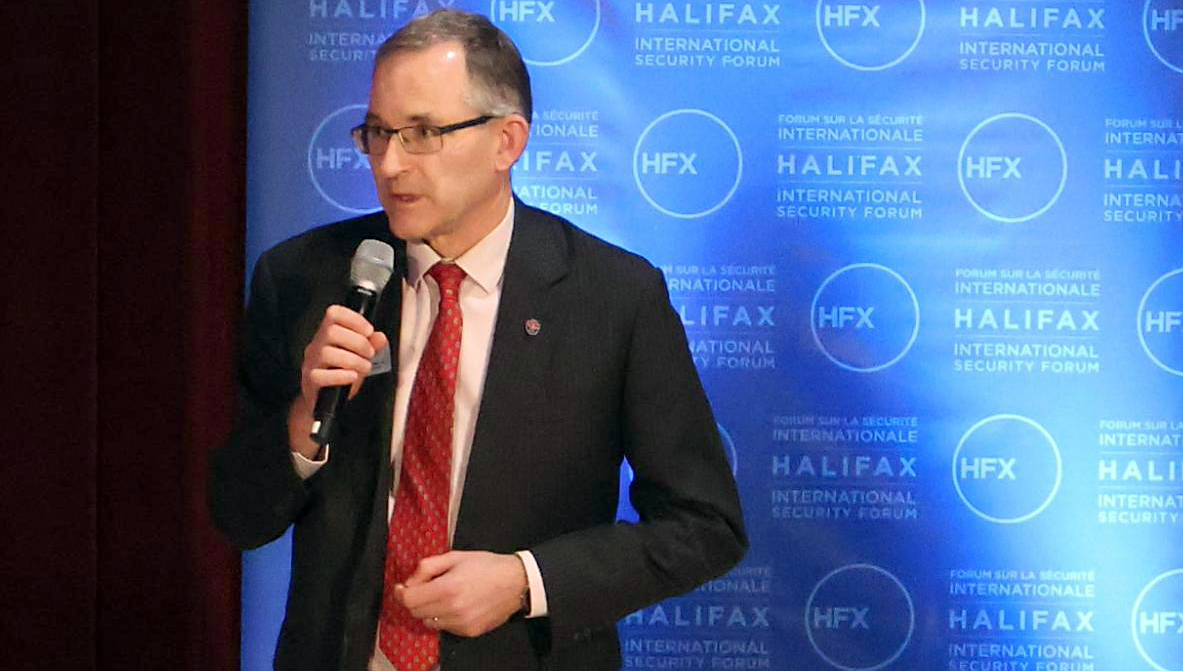Halifax Security Forum focuses again on Ukraine
Panelists discuss war and a second Trump presidency

caption
Panelists from left to right: Kolinda Grabar-Kitarovic, Luis Rubio, Janice Stein and moderator Michael SerapioRussia’s invasion of Ukraine — and its ripple effect across the globe — is the focus of the Halifax International Security Forum again this year.
“This is the third year running that we’re going to be emphasizing the war in Ukraine,” said forum president Peter Van Praugh, in an interview prior to the opening panel of the conference. ”Every issue in the world, whether it’s in Europe, whether it’s in the Middle East, whether it’s in East Asia and Taiwan is connected to what happens in Ukraine.”
The first panel of the conference, intended to shine a light on the world after the U.S. election, also turned to Ukraine.
“The war in Ukraine is already global,” said Andriy Shevchenko, head of the Ukrainian World Congress’s mission in Ukraine. He pointed to soldiers from North Korea entering the battlefield. He also cited Iran supplying Russia with drones, China’s mechanical and financial assistance, and Belarus’s role as a staging ground for offensive Russian forces.
The forum held its first day of events Friday. The conference is a non-profit, non-partisan organization. It has been bringing together hundreds of delegates each year since 2009 to facilitate conversations on global security.

caption
Saint Mary’s University President Robert Summerby-Murray gave an opening speech for the panel.The opening panel was hosted jointly by Dalhousie University and Saint Mary’s University, and held at SMU’s McNally Theatre Auditorium. Journalist Michael Serapio moderated the discussion, which also involved University of Toronto professor Janice Stein, Mexican thinktank leader Luis Rubio and former president of Croatia Kolinda Grabar-Kitarovic.
Grabar-Kitarovic argued “any defeat in Ukraine would set a very dangerous precedent.” The former Croatian president suggested defeat would show to strategic rivals that NATO can be defeated.
Rubio agreed, saying “Trump can’t let Ukraine fall,” as the defeat of Ukraine would open the president-elect to the same criticism President Joe Biden’s administration has faced regarding the United States’ withdrawal from Afghanistan.
Shevchenko predicted “Putin will try to humiliate Trump.” He said Trump’s promise to end the war on “day one” offers Putin an opportunity to snub Trump by bucking negotiations.
Grabar-Kitarovic said Trump was likely bluffing about pulling out of NATO.
“I don’t believe he will walk out,” she said.
Instead, she argued NATO countries are not keeping their promises to spend a minimum of two per cent of GDP on defence.,
“[Trump] will be insisting that two per cent will not be the ceiling, but the floor,” she said, stressing that Canadians “have to get to two per cent.”

caption
Dalhousie’s David Black says the forum is “the kind of place where you can have really honest discussions about what the advent of the Trump administration is going to mean for western powers.”David Black, acting director of Dalhousie’s Centre for the Study of Security and Development, worries about the possible rapid escalation of today’s conflicts.
“In the current moment in Ukraine, the potential for escalation is a couple of errors away,” said Black from his university office. “We are probably moving towards a mutually hurting stalemate in Russia-Ukraine.”
About the author

Joe van Wonderen
Joe van Wonderen holds a Bachelor of Arts degree from Dalhousie University with a focus in Political Science and English. His interests include...
